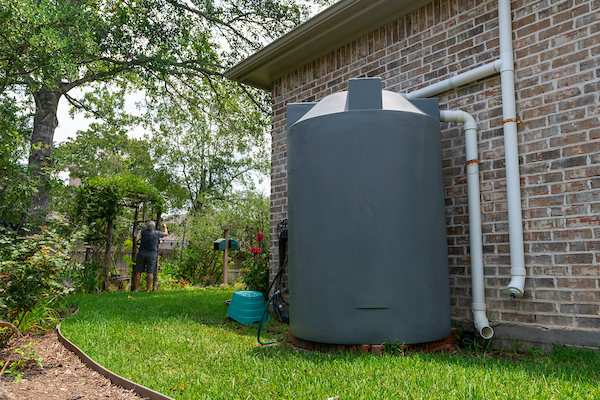Low-Impact Development workshop slated for Sept. 5 in Seguin
Design and function of rain gardens, pervious pavement, green roofs and rainwater harvesting
The Texas A&M AgriLife Extension Service and the Geronimo and Alligator Creeks Watershed Partnership will host a free workshop addressing low-impact development, LID, concepts geared toward reducing runoff and erosion and improving local water quality.
The program is scheduled for Sept. 5 from 8 a.m. to noon at the Seguin Independent School District Irma Lewis Outdoor Learning Center, 1865 E. U.S. Highway 90, Seguin. Preregistration is required by visiting https://tx.ag/geronimocreek or calling 979-321-5921.

Professional engineers, floodplain managers and certified American Institute of Certified Planners members are eligible to receive three continuing education units for attending the workshop.
Importance of Low-Impact Development
While houses, roads or parking lots seem like simple additions to the landscape, they can have the harmful effect of disrupting the natural flow of water. The workshop will teach how individuals and organizations can mitigate this disruption.
LID concepts to be discussed include the design and function of rain gardens, pervious pavement, green roofs and rainwater harvesting.
The workshop will be led by Fouad Jaber, Ph.D., AgriLife Extension specialist and professor in the Texas A&M College of Agriculture and Life Sciences Department of Biological and Agricultural Engineering.
“Green stormwater infrastructure is a sustainable approach to reducing runoff volume and pollution in urbanized environments,” Jaber said. “We will learn about design, construction and maintenance of these elements during this workshop.”
The Geronimo and Alligator Creeks Watershed Partnership is a stakeholder-driven group addressing watershed bacteria and nutrient impairments. The Geronimo and Alligator Creeks Watershed Protection Plan seeks to educate the community and increase stakeholder involvement to restore and protect local water quality.
Funding for this effort is provided through a federal Clean Water Act nonpoint source grant administered by the Texas Soil and Water Conservation Board from the U.S. Environmental Protection Agency.





